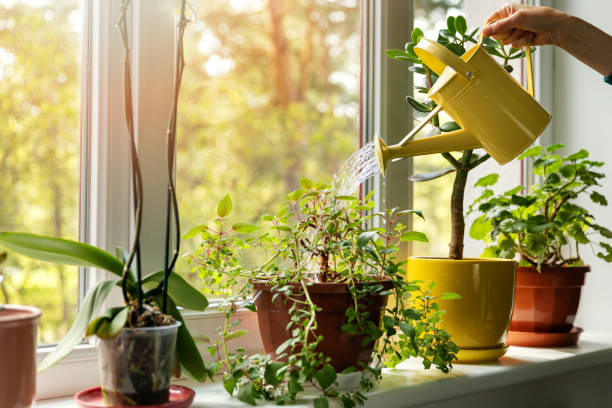
FAQ About Plant Care
Plant Care
2 years ago | gizem
How do I prevent overwatering my plants?
To prevent overwatering your plants, here are some tips:
- Understand your plant's water needs: Different plants have varying water requirements. Research and understand the specific needs of your plant, including the frequency and amount of water it requires.
- Check soil moisture: Before watering, check the moisture level of the soil by inserting your finger about an inch deep. If it feels moist, hold off on watering. Only water when the top inch of soil feels dry.
- Use well-draining soil: Ensure that your plant is potted in a well-draining soil mix. This allows excess water to flow out of the pot easily, preventing waterlogged roots.
- Choose the right pot size: Select a pot that is appropriate for the size of your plant. A pot that is too large can hold excessive moisture, increasing the risk of overwatering.
- Water deeply but less frequently: Instead of shallow watering, water your plants thoroughly until water flows out of the drainage holes. This encourages deep root growth and allows the soil to dry out between watering sessions.
- Avoid water accumulation: Ensure that your plant's pot has proper drainage holes to prevent water from accumulating at the bottom. Empty any excess water that collects in saucers or trays after watering.
- Monitor environmental factors: Factors such as temperature, humidity, and season can affect a plant's water requirements. Adjust your watering schedule accordingly, being mindful of weather conditions.
- Be cautious with succulents and cacti: Succulent plants have different watering needs due to their ability to store water. Allow the soil to dry out significantly between waterings to avoid overwatering these types of plants.
- Learn from your plant: Observe how your plant responds to watering. If you notice signs of overwatering such as yellowing leaves, wilting, or root rot, adjust your watering habits accordingly.
